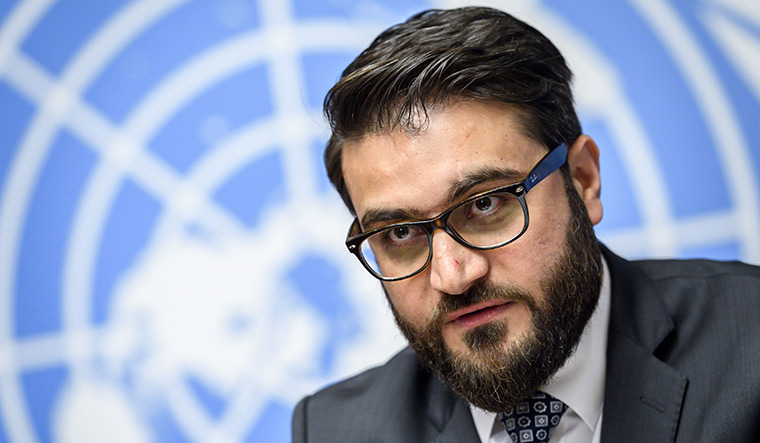AT 36, HAMDULLAH MOHIB is one of the youngest national security advisers in the world. Being in the security business in Afghanistan is not an easy job, even for older and senior diplomats and statesmen.
Afghanistan is at a crucial juncture. The US, under President Donald Trump, has been losing patience with the 17-year-old Afghan war. To negotiate a peace treaty with the Taliban, Trump has appointed Zalmay Khalilzad as the special representative for Afghanistan reconciliation in the state department. But the talks have yielded little, as the Taliban refuses to recognise the elected Afghan government.
On a three-day visit to India, Mohib had a long session with Ajit Doval, his Indian counterpart. Mohib also interacted with THE WEEK, talking about the road ahead in Afghanistan. Edited excerpts:
What role do you want India to play?
India has been our strategic partner. What we have in common is that we see eye to eye on terrorism. We also see eye to eye on the role of democracy and on the democratic process. My visit has been to continue our strategic dialogue on how we see the region, our security, and how we would like to shape the future of politics in Asia.
In the Moscow format, India is in the room with the Taliban. Would you want India to take a larger role to be the Afghan voice?
The talks that must happen have to be intra-Afghan. That is the only way to peace and reconciliation. (Among) those who engage with the Taliban outside of that format, some are helpful and some are unhelpful. Our partners who engage with the Taliban—be it the US, Saudi Arabia or the UAE—are doing it on our behalf, to facilitate that intra-Afghan process.
Part of my effort, being here in India, is to ensure that you are fully abreast of what is going on in that process, where we are, and how we continue to the path of stability in this region. We do not see this as related to Afghanistan alone. This is much broader than that. We would like all stakeholders in the region to play a constructive role.
How confident are you that the Qatar office fully represents the Taliban, given that the Taliban has become fractured over the years? How sure are you that any negotiations with the Qatar office will lead to peace on the ground?
We are not confident that the Qatar office represents all of the Taliban. There is a lot of factionalism inside the Taliban. They are not a cohesive group. They have multiple fronts as well. The Taliban has even failed to appoint a single negotiating team.
So each negotiation format has a different negotiating group?
There are different people who go to different places. So, the Moscow format had different people, compared with those who went to Abu Dhabi. We are not sure who went to Iran and who will represent them in Jeddah. So, there is a lot of factionalism. If they would like to see a united front, they should appoint a single negotiating team.
You are not talking to any faction?
We have not had peace talks on the table where they have had representation. Of course, we have contact. But that does not mean we are negotiating with them. The negotiations will happen when they formally introduce their negotiating team, and we sit across the table and have an agenda that is mandated for us. We have a peace shura, an advisory board, that will tell the negotiating team where our red lines are.


